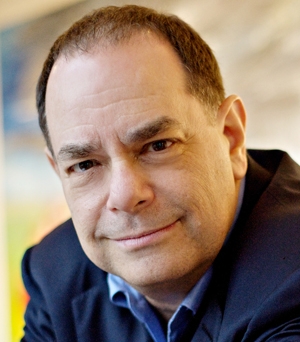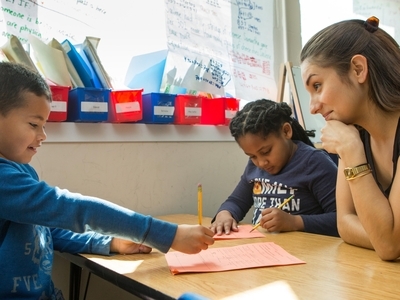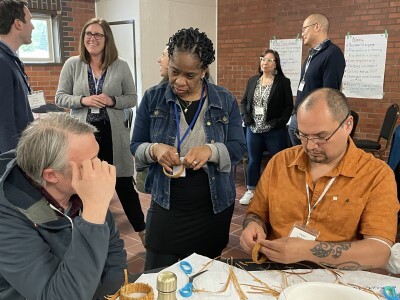Re-Framing What Young People Believe, Part 2
Topics
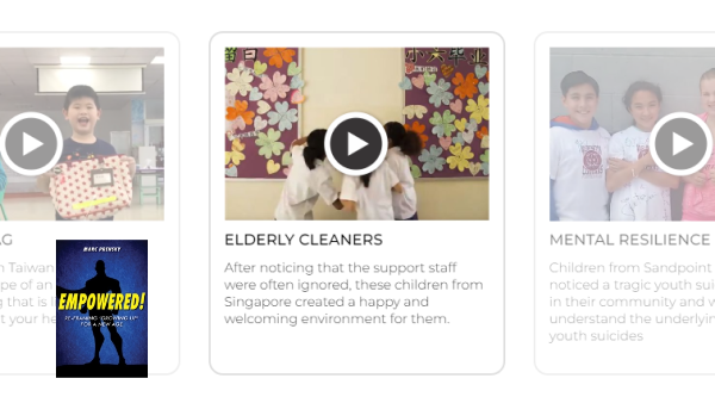
Next generation learning is all about everyone in the system—from students through teachers to policymakers—taking charge of their own learning, development, and work. That doesn’t happen by forcing change through mandates and compliance. It happens by creating the environment and the equity of opportunity for everyone in the system to do their best possible work.
EMPOWERED! Chapter 6
Many twentieth-century beliefs about young people growing up are disempowering, whereas young people today hold more empowering beliefs.
Note: This article is a reprint of the second half of “Chapter 6: Re-Framing What Young People Believe” of the author’s book, EMPOWERED! Re-framing ‘Growing Up’ for a New Age. Read the first part of Chapter 6.
Re-Framing Beliefs about Growing Up: The Beliefs Divide
In the chart below, I resume how I think beliefs are changing in the particular area that concerns us here: that of young people growing up in the 21st century. It is yet another way to re-frame what I see as a growing beliefs divide between the generations:
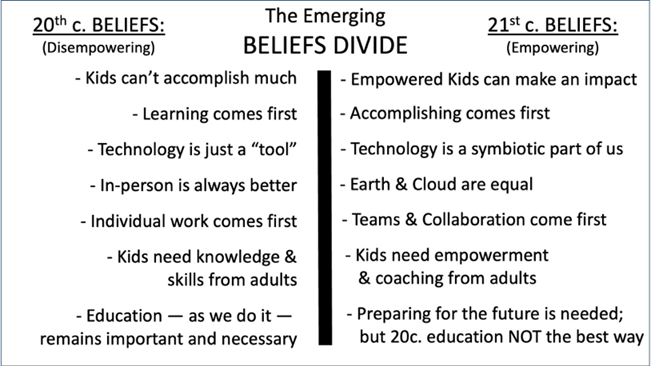
We see in the chart a stark differentiation between old 20th-century beliefs and new 21st-century beliefs regarding young people. How much do you think this beliefs divide affects our young people as they grow up? My sense is quite a bit. By encouraging or forcing our old beliefs on our young people, I believe we seriously hold them back from where they could and should be going. As indicated by the labels, most of the old 20th-century beliefs about young people are disempowering and need to be rethought for the Empowerment Age.
Thus another suggested re-frame:
Your beliefs may have been quite useful for the times in which you grew up, but forcing your old beliefs on young people—no matter how near and dear those beliefs may be to you—is unhelpful to them.
Beliefs and Empowerment
Some beliefs are more empowering than others. It is possible for both adults and young people to hold beliefs that are disempowering—or empowering—for young people. The big shift I see happening is to more empowering beliefs being held by young people. This—along with new technologies—are what is driving those young people into the new Age of Empowerment.
Disempowering Beliefs
The beliefs on the left of the above chart—in particular the old beliefs -that kids can’t accomplish much while they are young, -that years of learning must come first, -that technology is just an optional “tool” often better put aside, -that in-person is always better than remote or virtual, -that kids require all the past knowledge we can put into them, -that collaboration is cheating, and -that education as we do it is absolutely necessary for a person’s advancement in the world—are all extremely disempowering for today’s young people.
Empowering Beliefs
On the other hand, the set of new beliefs on the right -that young people can accomplish with impact, -that accomplishment comes before (and is the motivation for) learning, -that technology is a symbiotic part of us, -that the Earth world and the Cloud world are equal, -that young people need empowerment and coaching from adults rather than information, -that teamwork and collaboration are crucial in their times, and -that education and school (as the world delivers those things) are not be the best preparation for the future—are all enormously empowering.
I recommend asking yourself:
How many of the empowering 21st-century beliefs (on the right of the chart) do I agree with and hold? Do my own beliefs need reframing for the 21st century?
| Harbingers |
| My favorite proponent of the change to empowering beliefs is Kiran bir Sethi, from Ahmadabad, India. In 2011 she decided her own children—and all children—needed a change to an “I can” belief, rather than just academic success. She founded a school (the Riverside School in Ahmadabad) out of which grew Design for Change (DFC), an organization which is now in over 60 countries. That organization has empowered hundreds of thousands of kids all over the world, by enabling them to accomplish tens of thousands of projects with Measurable Positive Impact on their communities. In 2018 Pope Francis hosted over 3,000 of these young people from around the world in Rome and at the Vatican, where they shared their projects with each other and the world. |
| Reflection Questions |
| Do you see beliefs changing in young people? In what areas? What are some old beliefs that you hold onto most dearly? Do you think any of them will be less useful to the people in our coming world? |
And now, with some idea in mind of what young people are coming to believe, let us look at their future world, and their aspirations for that world. These are also in serious need of re-framing.
Read More EMPOWERED!
- Chapter 1: Re-Framing Growing Up for a New Generation, Part 1 and Part 2
- Chapter 2: A New Generation Seeing Things in a New Way, Part 1 and Part 2
- Chapter 3: Re-Framing Our Young People’s Times, Part 1 and Part 2
- Chapter 4: Re-Framing Who Young People Are, Part 1 and Part 2
- Chapter 5: Re-Framing Where Young People Will Live, Part 1 and Part 2
- Chapter 6: Re-Framing What Young People Believe, Part 1
The full book is available on Amazon.
Image at top: Screenshot of children’s work from Design for Change website—“Our children are telling us they don't need permission to make the world a better place.”

